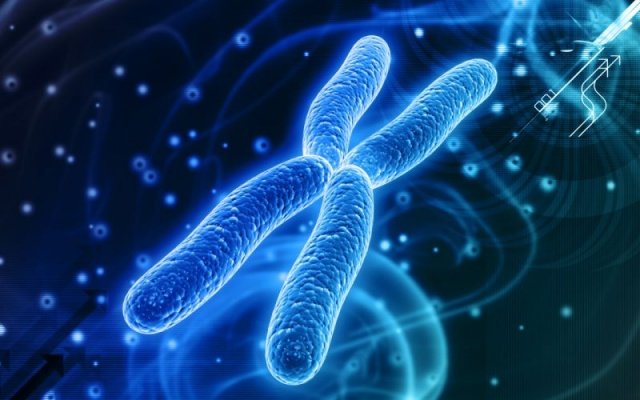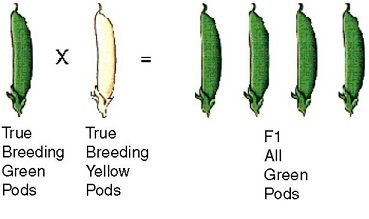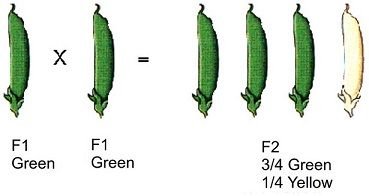
If I were to be delegated a hundred thousand steem power for every time I have seen couples having issues about some traits in their children, I would be close to being a whale on steemit by now. Unfortunately, life does not work that easy, or does it?
'Black kettle' dispensing 'white milk' situations of inheritance
Isn't that caption a bit racist? Perhaps not. I once witnessed a marriage of ten years hitting a snag simply because the wife gave birth to an albino. Reason? The husband claimed the wife must have cheated simply because there has never been a history of albinism in both his family and the wife's family. Ignorance!
Perhaps you might be thinking the albinism case is funny, here is a funnier one. Angela Ihegboro and Ben Ihegboro are a London based, black Nigerian couple. It was like a miracle when 35 years old Angela gave birth to a white baby.
She’s a miracle baby
"The first thing I said was, what the flip? Of course, she is mine. My wife is true to me. Even if she hadn’t been, the baby still wouldn’t look like that.”
Those are the words of Angela and Ben respectively. As a Nigerian in Nigeria, perhaps that would have ended quite differently. Although, had it been that the geneticists were not quick to have intervened in their case, things might have turned out differently. The husband gave such a sweet speech, right? Now let us turn the table around to a white couple giving birth to a black baby. Oh! Perhaps we should not bother.
What could have made a made a black couple to give birth to a white baby?
Scientists gave different reasons for this kind of rare situation to occur. It could have been as a result of unique mutation of the gene of the baby. If such is the case, the gene might become inheritable. Also, the gene that conferred the whiteness on the baby could have been a long-dormant one passed from the parent even though such trait did not appear in the parent. The condition even could have been a mutated version of albinism.[1]
Pattern of trait inheritance
In the early days of the history of science, most biologists and naturalists did notice aberrant individuals such as bleeders and albinos in many natural populations, but the frequency of such characters was so low that they were regarded as 'accidents of nature'. Thus, very little serious efforts were made to study how these traits were inherited.
In those times, studies were based on measurement and quantitative traits because they represent the most predominant variations in any population. Nevertheless, it was noticed that some traits persist in some families. A good example is haemophilia in the English royal family. It was also observed that dwarfinism in man is easily transmitted from parents to offsprings.
While both haemophilia and albinism may not have been observed in the immediate offspring of affected individuals, usually, such traits reappear in second or later generations.
Mendel's Experiment


The observations made Mendel postulate what is known today as law of segregation. He postulated that hereditary factors are particulate and that they maintain their distinctness from one generation to the next. The easiest working hypothesis is to assume that a hereditary factor or unit conditions the expression of an observable trait. If more than one alternative of a trait exists, such as a white and red flower in a plant, then more than one alternative to the hereditary factor must exist.

The hereditary factor which conditions the expression of a trait is referred to as gene. When an individual is capable of producing only one alternative form of a trait, that individual is said to be true-breeding for such trait and the individual is said to be homozygous for the trait under consideration.
When an individual is capable of producing the two alternatives forms of a trait, such an individual is said to be heterozygous for that trait.
In the cross involving smooth and wrinkled peas, the first filial generation seeds were smooth, thus, the wrinkled trait is not expressed in that generation. Therefore, the smooth character is said to be dominant while the wrinkled trait is recessive to smooth. The same thing happened in the cross involving green pod and yellow pod pea plant. However, the wrinkled trait re-appeared in the second generation when the progenies from the first generation were selfed or mated.
Segregation: why incest among siblings is dangerous!
From the result of Mendel, we have learnt that recessive traits are not usually expressed in the first generation but capable of re-appearing in the second or future generations. This is one the reasons incest among offsprings of the same parents should not be encouraged. Incest might trigger a deleterious but recessive trait to appear in the gene pool of the population. For example, if an AA individual marries and an AS individual, the sickling trait will not appear among their offsprings since it is recessive. However, there is likelihood that some of their offsprings will be carrying the trait in recessive conditions. If two of such offsprings commit incestous act which results in pregnancy, there is likelihood that the resulting baby will be a sickler. This should serve as enough deterrent for the advocator of incest among siblings.
Summary
Traits are inherited across generation according to some relatively predictable pattern. It was not really understood until Mendel performed several experiments using the pea plant. Traits are represented by genes which is made up of two alleles. When the alleles are of the same type, the trait is said to be homozygous, otherwise, it is heterozygous. Homozygous conditions can be dominant or recessive. When a trait is heterozygous, one of the alleles would be dominant and one recessive. Recessive alleles are not reflected in the first generation but are likely to be in the second generation. The pattern follows Mende's law of segregation.
I hope to continue this topic in my next post.
Thank you all for reading!
Image references
[1]image 1
[2]image 2
[3]image 3
Text references
[1]nypost.com: black parent gave birth to white baby
[2]khan academy: law of segregation
[3]nature.com: Inheritance of Traits by Offspring Follows Predictable Rules
[4]national library of medicine: An Introduction to Genetic Analysis. 7th edition.

Actually Mendel was rather lucky (respectively chose his research objects very thoroughly) to be able to observe monogenic traits (as opposed to polygenic traits) which depend only on one single gen (and it's different alleles; here one should add that for many genes do exist more than two possible alleles) only.
Therefore for example he hadn't to include the consequences of genetic linkage (plus possible crossing over) in his calculations (and even when he considered two monogenic traits at the same time the responsible genes were not linked ...).
True. I explored some of Mendel's "lucky strikes" here.
I totally agree that Mendel did not solve everything that has to do with genes and trait inheritance. But he laid a solid foundation for other scientists to either confirm or disprove. There are several exceptions to law of segregation and independent assortment of genes, but both laws form the basis for the exceptions, how ironical!
Thanks for the informative post- I would like to add another layer which you most already know about but as it is my wife's research topic I'm too excited to skip it:
Epigenetics - epigenetic is a layer that's sits on top of the genetic material, the thing that determine how we will look, will we be healthy or sick (to some extent) and so on - those are tiny molecules that are connected to our DNA and(generally speaking) prevent access to the mechanism responsible to the transformation of DNA to proteins, and proteins are a main part of our body - a problem with a protein or two can harm a person seriously.
Now - interestingly - epigenetic CAN be inherited(the mechanism is controversial) but they are also changing due to lifestyle deeds - smoking for example can result in harmful epigenetical changes.
This is short, and lacks bibliography- but I couldn't hold myself!
well, this is quite an interesting side to an already exciting world of genetics. I would definitely want to explore that. Thanks
Nice piece on heredity. In my own opinion, this is the bedrock of evolution. Awesomely enough, acquired traits can be inherited too.
Nice piece buddies
evolution is built on heredity and much more. The environment plays a large part in evolution as well. Thanks for coming around
Thank you for that refresher :) It took me back to the genetics part of my anthropology class. I had some problems comprehending non-synonymous base point mutations, but then, who doesn't? Thank you again for your contribution!
If there is anyone that understands mutation completely, I would not mind being a student of such person. Thanks for reading, it means a lot!
Wow. Very educative post I must say. I always ponder why people turn out gay too, because I hear it’s from these same gene analysis instigated by Sir Gregor Mendel,but not so sure about that. Thanks for sharing and I’ve been educated by this post on new information adding up to my knowledge of Offspring characteristics and Segregation.
you are welcome. Thank you very much for reading through.
Hi nvlsen there is currently no evidence that sexual preference or identity have a genetic component. Though there is some evidence that events during development (notably timing of oestrogen and testosterone spikes conenciding with genital and brean development) may have something to do with gender identity.
Lovely piece you have there......keep it up
thanks brother
There's also a really cool thing called crossing over where two chromosomes will literally trade genetic material while they're creating sperm and ovaries, resulting in even more possible outcomes for potential offspring!
crossing over, along with some other factors actually form the basis of diversity. Otherwise, all humans would look alike :)
Genetics always amazes me! :))
me too!
Great write up on heredity and genes. The study and analysis of genes using Bioinformatics would really improve things. I just tried to write on that. Well done sir.
Thanks for reading through as well. I will check you blog out.
great post.. @hadji
thanks!
Nice fresh take on Mendel, with personal anecdotes added for readability etc. Good read.
thank you @alexander.alexis
Very well written and clearly put together. Nice work